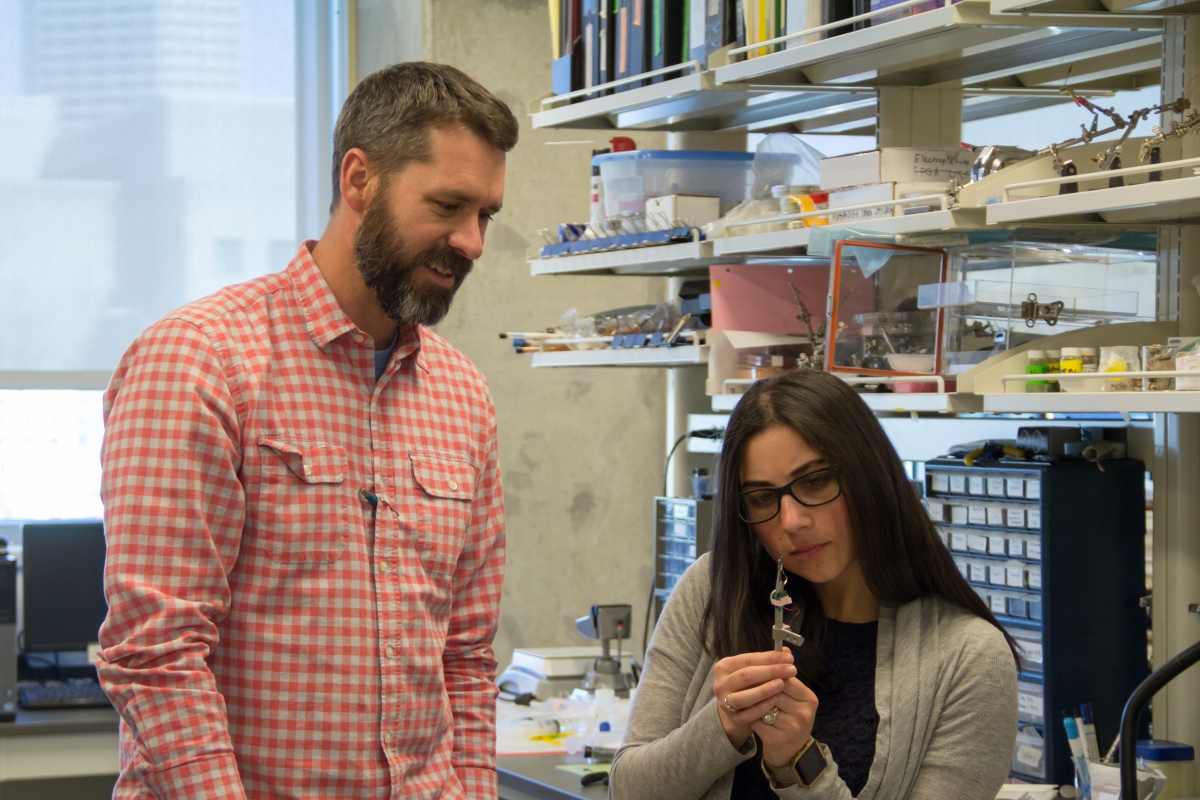Written By: Cindy Fox Aisen
 INDIANAPOLIS -- When a baby is taken from its mother for even a brief period early in life, this traumatic event significantly alters the future, adult function of the brain, according to a new animal model study from the School of Science at IUPUI. These changes in the brain are similar to disturbances in brain structure and function that are found in people at risk for neuropsychiatric disorders, such as schizophrenia.
INDIANAPOLIS -- When a baby is taken from its mother for even a brief period early in life, this traumatic event significantly alters the future, adult function of the brain, according to a new animal model study from the School of Science at IUPUI. These changes in the brain are similar to disturbances in brain structure and function that are found in people at risk for neuropsychiatric disorders, such as schizophrenia.
The study was conducted in the laboratory of associate professor of psychology Christopher Lapish. In the study, young rats were removed from their mothers for 24 hours when they were nine days old, which is a critical period of brain development. The resulting scans revealed that, unlike animals that were not separated from their mother during this crucial period, the separated rats exhibited significant behavioral, as well as biological and physiological, brain abnormalities in adulthood.
"Rat and human brains have similar structure and connectivity," Lapish said. "Understanding what happens in the brain of a young rat that's removed from its mother gives us important insight into how this type of early trauma -- perhaps comparable to the incarceration of a human mother -- affects the young human brain.